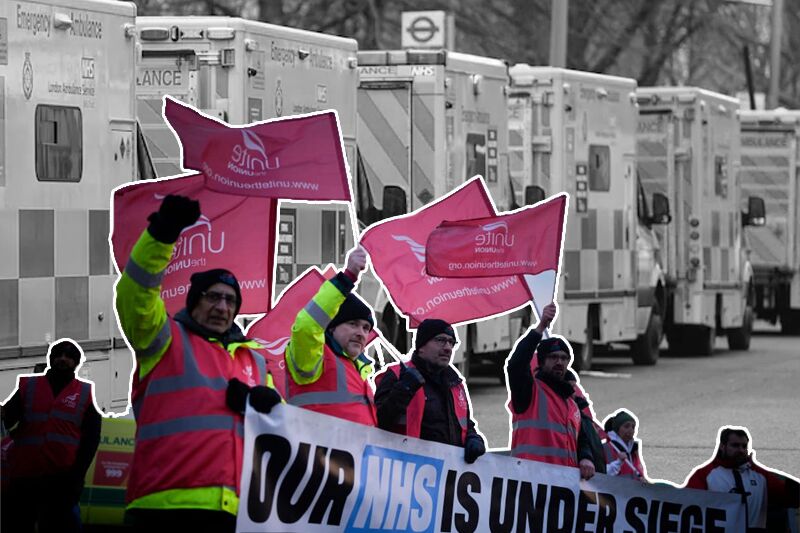
nhs disruption warning, strike in south east england
The head of England Hospitals says that taking action “will put even more pressure” on services that are already under a lot of stress and wants to talk about it.
NHS staff in the southeast are on strike, which could cause problems
On Tuesday, ambulance workers in the south-east of England will go on strike for the second time over pay. This has led hospital bosses to warn of more stress on already overworked emergency services.
Members of the Unite trade Union who work for two ambulance trusts are on strike because they turned down the government’s offer of a lump sum cash payment for 2022-23 and a pay rise of 5% less than inflation for 2023-24.
Sharon Graham, the general secretary of Unite, asked ministers to reopen talks and make a “proper wage offer” to NHS workers.
She said, “The south-east ambulance workers’ strike is part of Unite’s plan to put more pressure on the government by making things worse.” We have always said that a lump sum for 22-23 that is not combined would not be enough. So that’s how it worked out. The current offer does nothing to fix the NHS’s problems with hiring and keeping staff.
Unite is holding a series of votes to make it possible for more workers to go on strike. Even though the NHS staff council, which is made up of 12 unions, voted to accept the pay deal, the move was made anyway. At the vote earlier this month, Unite was one of the unions that did not support the deal.
Unite workers at both the South Central and the South East Coast ambulance trusts will go on strike on Tuesday from 12 pm to 10 pm. This is their second strike, but other ambulance services have been on strike for five days.
Keep Reading
Julian Hartley, the CEO of NHS Providers, which is made up of leaders of health service trusts, said that the strike would “put even more pressure on NHS services that are already stretched thin.” He said that hospital leaders were expecting another day of problems, such as rescheduled patient appointments, delays in handovers, and more pressure on emergency rooms.
“Leaders across the health service had hoped that the NHS staff council’s acceptance of a new pay deal would mean the end of the most disruptive period of strikes in NHS history,” said Hartley. “But they still have to deal with more walkouts.”
“The government and unions need to have serious talks if they want to end these ongoing fights and stop more strikes.”
He also said that trust leaders were working hard to lessen the effects of the strikes. He urged people to keep calling 999 in life-threatening emergencies and to use NHS 111 online services for non-urgent health needs.
At the Portsmouth patient transport service base and the Thameside ambulance station in Northfleet, Kent, there will be picket lines.
A spokesperson for the Department of Health and Social Care said it was disappointing that strike action was still going on after some unions voted to accept the pay offer.
She said, “These strikes will add to the stress on the NHS and make things hard for patients.” Most unions on the NHS staff council voted to accept our pay offer. We hope that the unions that choose to stay in dispute, even though many of their members also voted to accept this offer, will see this as a fair result that has the support of their colleagues and decide it is time to end the industrial action.



